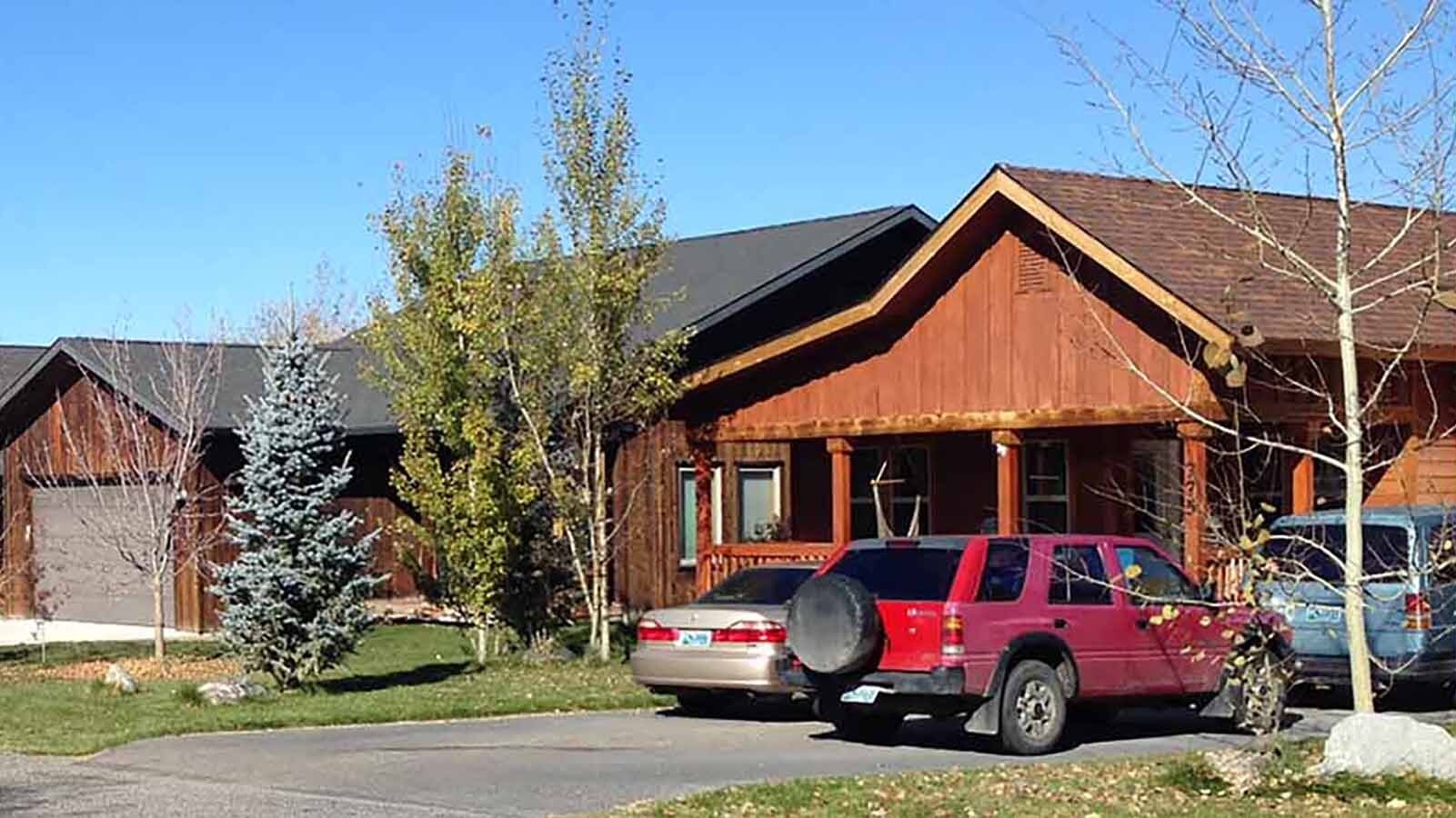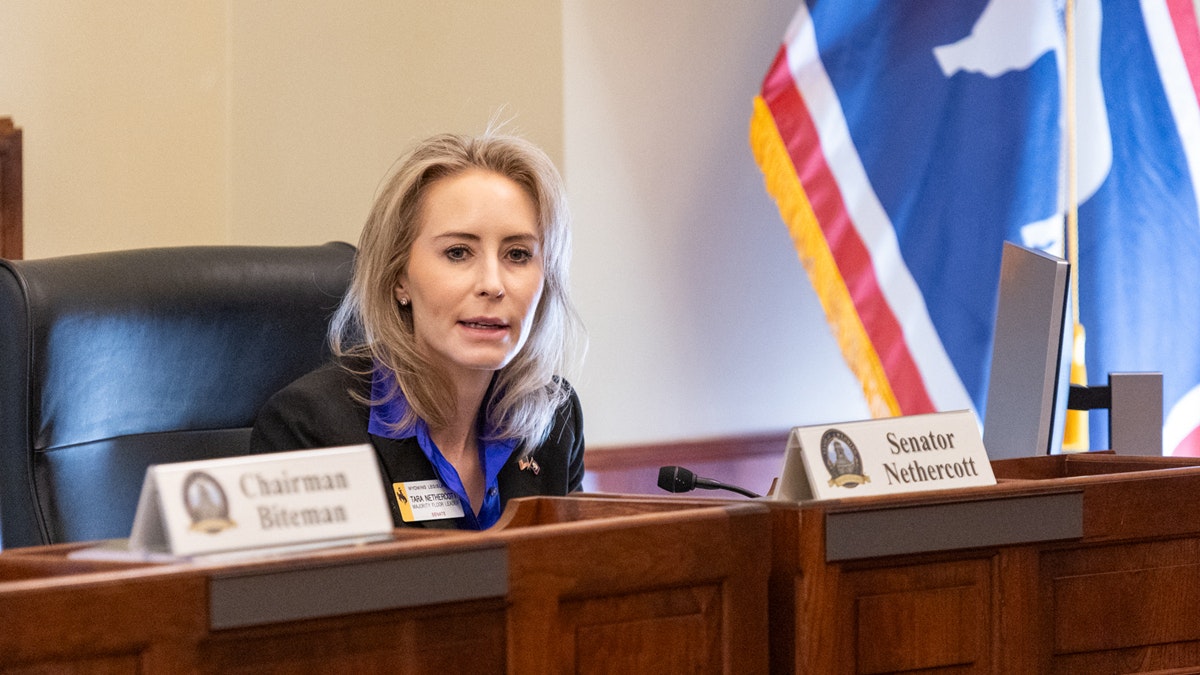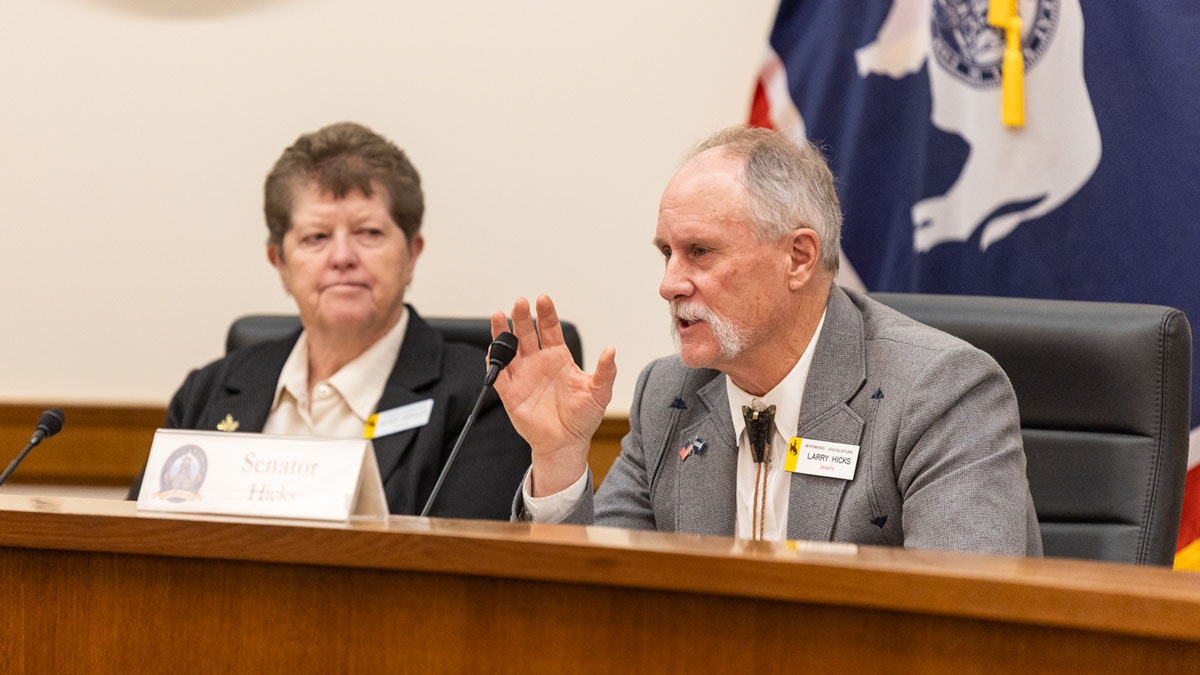A conversation that was intended to provide statewide input on how to get more affordable housing in Wyoming morphed into a focus group on the affordable housing woes of Teton County.
The Wyoming Legislature’s Regulatory Reduction Task Force met Thursday to talk about solutions to affordable housing crunches in communities across the state.
Earlier this year, Montana passed home rule legislation that requires cities and counties of a certain size to plan for the housing they need to accommodate population growth. The Wyoming task force is considering similar legislation.
State Sen. Mike Gierau, D-Jackson, co-chair of the task force, said his group has been told that various state-level laws have been standing in the way of affordable housing.
Teton County became the main focus of the discussion as local officials urged the task force to allow them to continue their current approach to affordable housing, which has involved the inclusion of many government-sponsored projects.
Many from the private and nonprofit sectors argued against this and encouraged the task force to develop solutions that stop what has been happening in Teton County.
Can’t Live Here Anymore
Teton County Sheriff Deputy Sara King said she lives in Lincoln County, about 40 minutes on a good day to the Teton County border and 70 minutes from Jackson, where the sheriff’s office is located.
Come wintertime, her commute can take as long as 90 minutes to two hours to get to and from home. She leaves her 10-month son in child care during the day, a major cause of stress in her life. King said of the department’s roughly 20 deputies, only four live in Teton because they can’t afford to live there.
“This could create a huge issue if there, heaven forbid, was a critical issue or something that required something … more than the four deputies that are on shift to respond to,” King said.
This scenario was realized a few weeks ago. King responded while she was off duty, but it took 45 minutes to get to the scene.
Jackson Town Manager Tyler Sinclair said only about 60% of the Jackson workforce lives in Teton County, down about 30% since 1990.
Consultant Liz Brimmer said the number of people commuting into the county to work has become apparent.
The Situation
Sinclair said the average cost for a single-family home in Jackson now is $2.5 million and the average rental rates for an apartment are $4,200 a month, the latter which has doubled in the last five years.
“That is not affordable to our local workforce,” he said. “We are fighting hard every day to maintain our workforce.”
Sinclair said the high costs are because of external demands, wages offered outside the community and high construction costs. Although task force member Mark Barron said he believes some regulations have hampered affordable housing development in Jackson, Sinclair said his staff have tried to be as predictable as possible, which he considers the best carrot the city can offer to housing developers.
Sen. Bob Ide, R-Casper, a real estate agent, advised the Teton County leaders to create “the right playing field” with less government regulation or no one will want to develop in their area.
Teton County has about 1,500 deed-restricted affordable workforce housing properties, and April Norton, housing director for the county, said studies have shown it needs about 2,000 more to meet the community’s needs.
Of all the land in Teton, Norton said about 97% is federal. Of the 3% land that is available, about 97% is zoned rural for one unit per 35 acres of land.
“We’re talking about a very finite resource in the amount of land available to build homes for local workers and their families,” she said.
Teton and Jackson have provided incentives and expedited approval for private developers to build affordable housing in their communities. Norton said this has resulted in the construction of 270 affordable homes by private developers. In total, there are 900 new price-controlled homes set for construction in Teton.
“That’s a huge success story for us where we live, and we’re really proud of it,” she said.
Jackson resident Kelly Lockhart said the issue isn’t the lack of land in Teton, but rather a lack of ability for the private sector to help with housing shortages.
“The issue is that there are roadblocks and regulations and zoning that are causing the problem,” he said.
He warned the task force against letting other communities develop similar processes as used in Teton and encouraged the task force to create legislation that leads to regulatory reduction statewide.
“I would love to have local control also, but if the educational institutions weren’t moving in the direction you guys wanted to go, you guys would find a way to kind of prod them along,” he said. “I would argue you have a role in this.”
Red Tape
Some task force members said there all regulations should be rolled back, local and state, and expressed frustration about the length of time it sometimes takes counties to approve building permits.
Jim Darwiche said obtaining approval for his affordable housing development has been nothing short of a “nightmare,” and is still held up two and half years after the original application was submitted. He said approval has been hindered with countless stipulations designed to keep the building empty and unable to operate.
Three lawsuits have been filed against the Teton County commissioners regarding their approval process for this project. In response, Darwiche said, a condition was added to further delay the project.
“This condition penalizes us for something we did not do,” he said. “In short, this building is still in limbo and mostly empty while people are living and sleeping in the back of their cars. Does this really benefit the community?”
Local Efforts
Wyoming is one of three states that doesn’t have a housing trust fund, but a number of efforts have been initiated on local levels to help combat the housing crunch.
In Sheridan, the Homer A. and Mildred S. Scott Foundation bought property that had potential for six housing units. Collaborating with the local school district, the foundation remodeled and sold the buildings to the school districts at a 50% rate of fair market value. The properties are now used to retain and recruit teachers.
In 2022, Sheridan also created a housing trust and has partnered with their local Habitat for Humanity on the project.
The city of Cheyenne is considering an ordinance to create a building permit fee reimbursement program. Those who built deed-restricted housing in city limits can apply to get their building fees reimbursed.
More Code Wanted
Cody Mayor Matt Hall said his city has attempted to respect private property rights as much as possible but added that regulations sometimes can serve as launching pad for growth rather than a hindrance. He warned that trying to solve localized problems on a state level can have a disbalanced effect throughout the state.
“If you start taking an ax and start cutting those things away, what I think you’re really going to end up with is some uncontrolled growth and I can say firsthand, a bunch of lawsuits, because that’s exactly what we have going on in Cody,” he said.
He mentioned a recent dispute about the construction of a Church of Jesus Christ of Latter-day Saints temple in his community. Hall said the flexible nature of the city’s code is ultimately what led to the approval of the project despite large public opposition.
“As a community leader what we’re seeing is a lot of feedback from people that are upset how that happened,” Hall said. “I point to our code.”
On Thursday, the Harvard Growth Lab provided suggestions to the task force such as eliminating density restrictions on building throughout the state. The Growth Lab also suggested focusing on regulatory reforms that affect Wyoming's largest cities and complementing these with additional funding for arterial infrastructure.
What About Property Taxes?
Hall said increasing density in Wyoming cities could help with the affordable housing issue. Sinclair said this has been an effort Jackson has consciously taken up to facilitate its growth, citing the zoning changes it has allowed to take place to spur this growth.
Sen. John Kolb, R-Rock Springs, questioned whether surrounding homeowners are compensated for zoning changes. Sinclair said they weren’t and the only negative change for neighbors as a result of the zoning change is their ability to tear down their homes and build a new single-family residence. He said there is no evidence property values have gone down in neighborhoods bordering affordable housing units.
“I think by increasing zoning, or increasing the development potential, we’ve actually increased the valuation of those homes,” he said.
Kolb criticized this practice as a “local maneuver” and said the government is giving itself a free pass that must be subsidized by the taxpayers.
Task force member and former state legislator Eli Bebout also questioned the legality of deed-restricted housing only being taxed at the maximum rate that an affordable housing unit can be purchased for.
The vast majority of property taxes in Wyoming go towards school funding. Lockhart said he has calculated there are roughly $15 million-$20 million in taxes each year that are being lost between deed-restricted and free market housing units.
Leo Wolfson can be reached at leo@cowboystatedaily.com.





